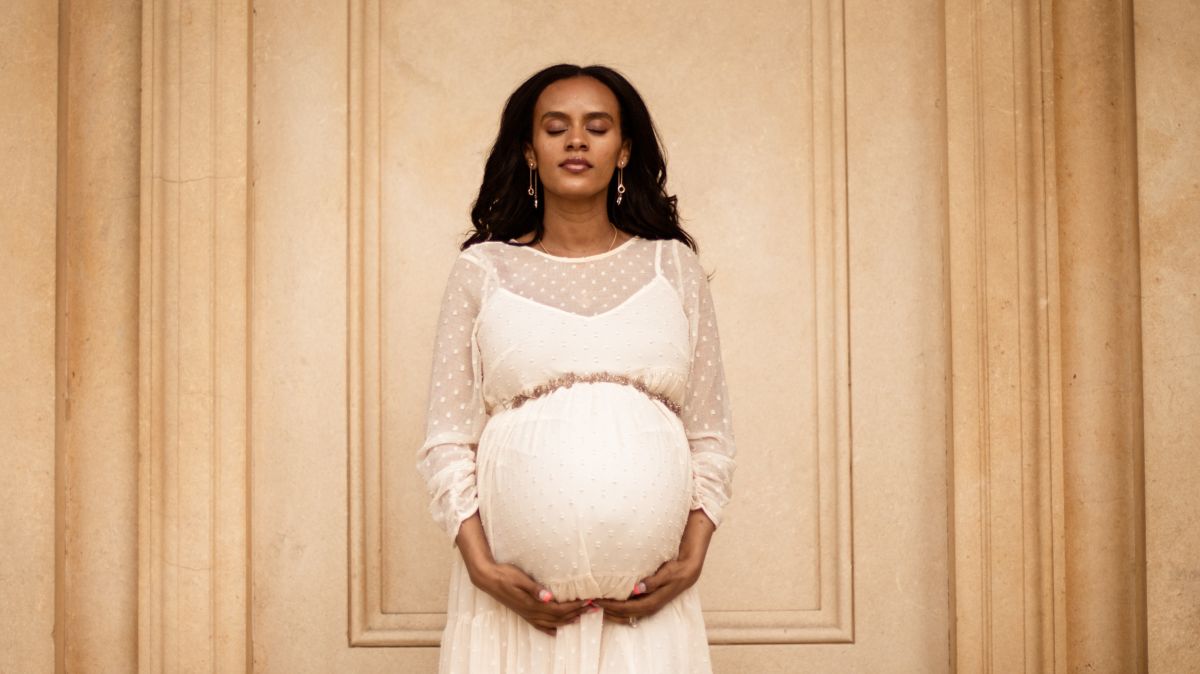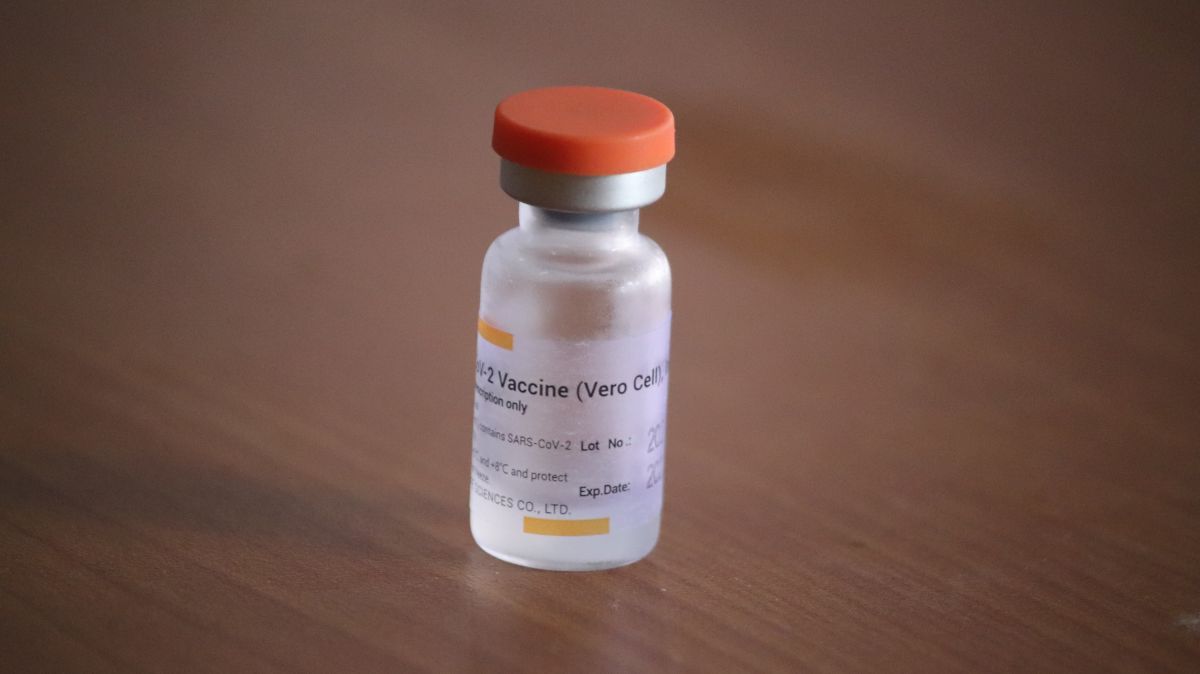The Latest

This pages serves to highlight the latest objective research, news, and professional guidance and recommendations regarding pregnancy-related health. Unless ongoing, highlights are kept on this page for approximately 30 days before being removed or added to a permanent Topic page.
Recent research updates, health organizational recommendations, and other important highlights related to pregnancy are listed below. Women should talk to their health care provider (HCP) if they have any questions. Full study links are available under "References" at the bottom of the page.
Popular Links: COVID-19 Infection Page; COVID-19 Vaccination Page
Latest Research/Publications
The dates below reflect the date of the publication, not the date of page entry. COVID-19-related studies are listed under the "COVID-19 Infection/Vaccination" section on this page.
October 18, 2022: We've added a "Long-COVID" section to our COVID-19 Infection page. Read it here.
October 17, 2022: Researchers recruited 84 pregnant women with mild COVID-19 and 88 pregnant women without COVID-19. All participants were unvaccinated. Of the 83 participants who attended the follow-up for post-COVID-19 symptoms, 63 of them (75.9%) presented with Long-COVID, with the most common symptoms being shortness of breath, fatigue, headache, and loss of taste and/or smell. The median duration of long COVID symptoms was 60 days.
October 11, 2022: An animal study showed that prenatal exposure to e-cigarette vapor, regardless of nicotine presence, causes consequences in lung function and structure that persists in the offspring to adulthood. Learn more about vaping and pregnancy.
October 4, 2022: Milk was collected from women who were 6–8 weeks postpartum and were either using cannabis post-delivery, had used cannabis during pregnancy, or were non-users. Metabolites of cannabis are found in breast milk and can accumulate in higher concentrations with ongoing consumption, which is concerning for potential exposure among infants born to mothers who consume cannabis. THC was detected in the milk of women who reported cannabis use during lactation. Carboxy-THC, 11-hydroxy-THC, CBD, and CBN were also detected in the milk of women who used cannabis postpartum.

October 3, 2022: In a cohort study that included 145,702 antidepressant-exposed pregnancies, antidepressant exposure during pregnancy was not associated with autism spectrum disorder, attention-deficit/hyperactivity disorder, specific learning disorders, developmental speech/language disorders, developmental coordination disorders, intellectual disabilities, or behavioral disorders. Results were generally consistent across antidepressant medication classes, commonly used individual drugs, and gestational exposure windows.
September 26, 2022: This study found high maternal protection against medically attended COVID-19 in the Delta period for 2 and 3 mRNA doses and highlighted the importance of a booster dose for both Emergency Department/Urgent Care and hospitalization end points during Omicron predominance.

September 2022: Data on 1,018 pregnancy-related deaths among residents of 36 states from 2017–2019 found that 80% of pregnancy-related deaths were determined to be preventable. Further, of the top 6 leading causes of pregnancy-related death, mental health conditions was at the top. Among deaths for which timing in relation to pregnancy is known, approximately 22% of deaths occurred during pregnancy, 25% occurred on the day of delivery (within 24 hours of the end of pregnancy) or within a week after delivery, 23% occurred from 7 to 42 days postpartum, and 30% occurred in the late postpartum period (43–365 days postpartum).
COVID-19 Infection and Vaccination
Infection
View our full page on COVID-19 infection and pregnancy.
General COVID-19 information and pregnancy health: According to currently available case series and cohorts as of October 2022, data indicates pregnant women are not more susceptible to the disease than non-pregnant women, and fetal and symptomatic neonatal infection appear to be rare events.
However, pregnant women who contract COVID-19 appear to be at higher risk of complications from the disease than non-pregnant women of reproductive age. These complications include Intensive Care Unit admission, the need for mechanical ventilation, and the need for extracorporeal membrane oxygenation (ECMO). Learn more.
Vaccination
View our full page on COVID-19 vaccination and pregnancy.
There are currently three COVID-19 vaccines in the United States approved or authorized for use: Comirnaty (formerly known as Pfizer-BioNTech), Moderna (SpikeVax in Canada, Europe), and Johnson & Johnson/Janssen.
MORE: Read more on COVID-19, pregnancy, and more detailed vaccine information and guidance from the American College of Obstetricians and Gynecologists, the Society for Maternal-Fetal Medicine, the Society of Obstetricians and Gynecologists' of Canada, the U.K. Royal College of Obstetricians and Gynaecologists, and The Royal Australian and New Zealand College of Obstetricians and Gynaecologists here.

Influenza
October 14, 2022: According to the U.S. Centers for Disease Control and Prevention, early increases in seasonal influenza activity have been reported in most of the United States, with the southeast and south-central areas of the country reporting the highest levels of activity. This activity is higher than this time last year. The most frequently reported viruses this week were influenza A (H3N2).
Influenza ("flu") is a common seasonal respiratory infection that can be more severe in vulnerable populations. It is often indicated that pregnant women are more susceptible to influenza infection, or may experience more severe illness.
However, severity of influenza infection – and its prognosis during pregnancy on both mother and baby – appears to depend upon: stage of pregnancy, underlying illnesses, vaccination status, the overall health of the pregnancy, and at which point the woman sees a health care provider or receives medical care for the infection.

Action
Women should talk to their HCP if they any questions related to any of the updates or research findings above.
COVID-19 and Influenza: Not all pregnant women who contract COVID-19, influenza, or other respiratory infections will have serious illness. However, there is currently no way to determine which women may experience a more severe course of infection.
It is recommended that pregnant women:
Seek care immediately or dial 911 if experiencing a medical emergency. Emergency symptoms can include trouble breathing, persistent pain or pressure in the chest, new confusion, inability to wake or stay awake, or bluish lips or face. This is not an inclusive list, and women should always call their HCP or visit an emergency room when necessary.
Report any and all symptoms of a respiratory infection to their HCP, to include cough, fever, shortness of breath, and diarrhea
Wear a mask in public settings in communities with high transmission
Regularly wash hands for at least 20 seconds (if soap and water are not readily available, use a hand sanitizer that contains at least 60% alcohol)
Avoid touching their eyes, nose, and mouth with unwashed hands
Do not skip prenatal care appointments or other health appointments that may be necessary
Make sure to have at least a 30-day supply of prescription medications
Learn about stress and coping
Get adequate sleep and physical exercise
Quit smoking (risk factor for infection)
Any pregnant woman who has traveled in a state or country with a high rate of COVID-19 infection or who has had close contact with an individual with confirmed infection should be tested and quarantined.
Women should refer to the CDC and ACOG COVID-19 web pages below for additional information.
Resources
Total cases in the United States/COVID tracker (U.S. Centers for Disease Control and Prevention)
COVID-19 Home Page (U.S. Centers for Disease Control and Prevention)
ACOG Statement on COVID-19 and Pregnancy (American College of Obstetricians and Gynecologists; June 2020)
Coronavirus (COVID-19), Pregnancy, and Breastfeeding: A Message for Patients (American College of Obstetricians and Gynecologists)
The Management of Respiratory Infections During Pregnancy (Immunology and Allergy Clinics of North America; 2006)